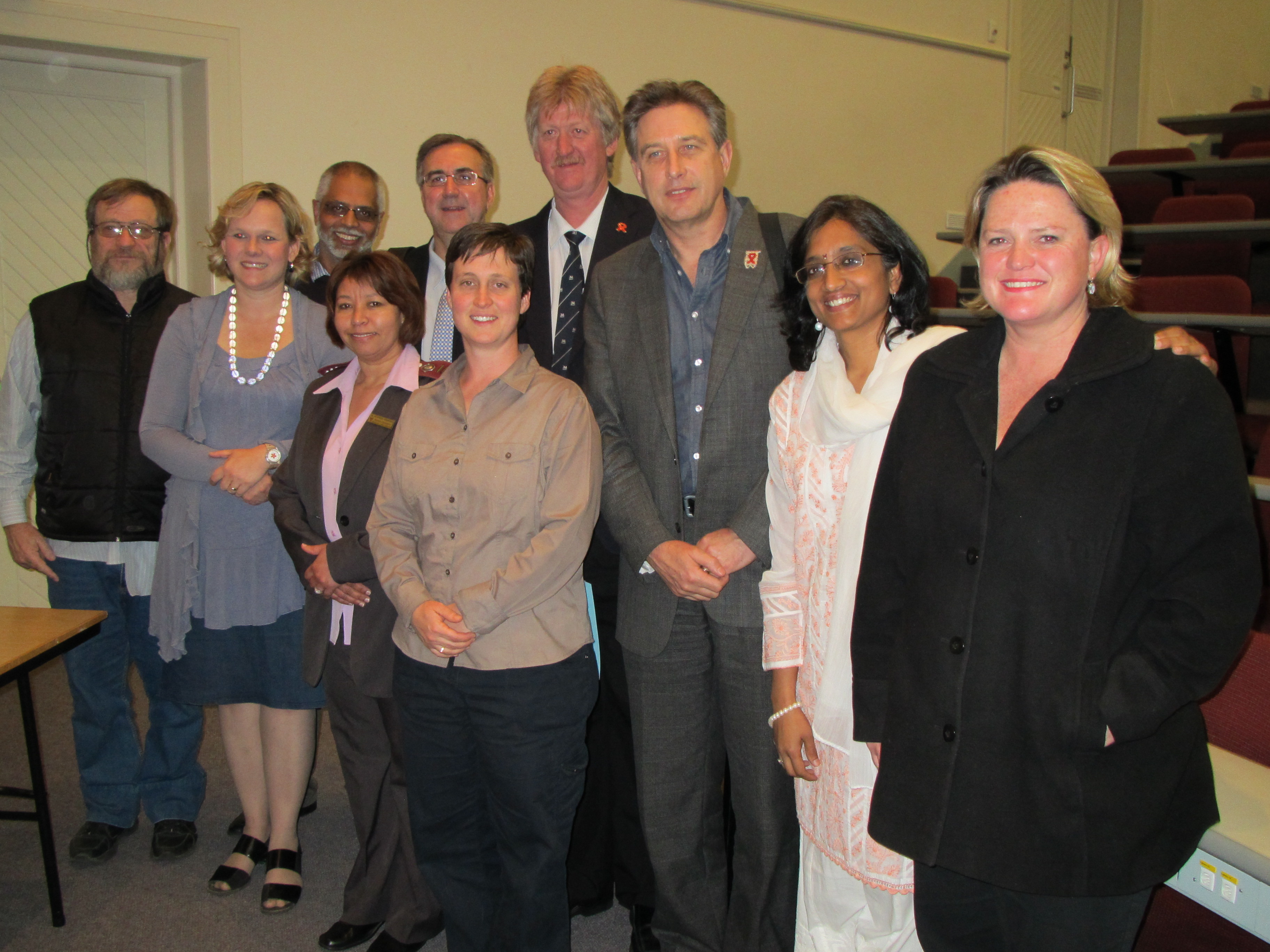
Working within culturally specific frameworks and understandings of health and disease and finding organic effective means of empowering individuals to take responsibility for their health were top of the agenda at the public forum hosted by the Faculty of Pharmacy to mark World Heart Day recently.
Panelists included Professor Rod Walker, Dean of Pharmacy at Rhodes, Dr Barbara Bull, general practitioner, Dr Eleanor Galpin of Settlers Day Hospital, Mr Mohamed Docrat, district pharmacist, Mr Steven Lang, editor of Grocott’s Mail, Sister Heather Ferreira, of Rhodes’s health care centre, Professor Harry Dugmore Interim director of the Discover Centre for Health Journalism at Rhodes and Dr Candice Christie of Rhodes’s Human Kinetics and Ergonomics department.
Accounting for an estimated 36 million deaths worldwide every year, and 29% of deaths in South Africa, though noncommunicable diseases (NCDs) are largely preventable, they continue to increase to epidemic levels. Cardiovascular disease (CVD), diabetes, cancers and chronic respiratory diseases are largely the result of lifestyle, including physical inactivity, tobacco smoking, unhealthy diets and the harmful use of alcohol. As such, their impact, which is increasing each year, particularly in developing countries, is for the most part avoidable.
Referred to as “the silent killer” by panellist and general practitioner Dr Barbara Bull, CVD is the leading NCD worldwide. According to Dr Bull, “more people die annually from CVD than anything else”, and it is having the greatest impact in lower to middle income countries where there is increased exposure to risk factors and less access to preventive measures. As highlighted by forum organiser and Associate Professor in the Faculty of Pharmacy, Sunitha Srinivas: “Health systems in developing countries have often been oriented towards tackling communicable diseases such as HIV/AIDS, malaria and TB and hence struggle to cope with chronic care management due to increases in the number of patients with NCDs such as CVDs.”
The situation in Makana is not much better. According to district pharmacist Mr Mohamed Docrat, drug expenditure accounts for the second biggest outlay of government funds, behind salaries. A budget of R18.5 million was allocated to healthcare expenditure in 2010. “Unless patients take responsibility for their own health this situation is unsustainable,” said Mr Docrat. For Dr Eleanor Galpin of Settlers Day Hospital, a combination of overloaded healthcare systems, low literacy levels, language barriers, denial concerning medical conditions, poor understanding of illness, lack of faith in the healthcare system and the belief that healthy living is unattainable creates a vicious cycle whereby patients do not feel empowered to tackle their conditions.
Highlighting the role the media can play in increasing awareness surrounding NCD and CVD, Mr Steven Lang and Professor Harry Dugmore called for a more integrated approach between scientists and journalists, whereby both can benefit from open lines of communication. Referring to the incremental changes in lifestyle which can make all the difference in preventing the onset of NCDs, Prof Dugmore said, “The big issue is that there are a whole variety of very simple things that if we could get across effectively (in the media), could make significant differences.”
Dr Candice Christie highlighted the role physical activity can play in reducing the risks of developing NCD and CVD, while embodying good health principles and being an example to patients is a step in the right direction, said Sister Heather Ferreira of Rhodes University’s health care centre: “We need to have some empathy with our patients; it takes real skill and excellent counselling to get them to take their medication. Nobody said it was going to be easy. Let’s continue to shine our torches,” she said.
After long being neglected, the global problem of NCD has received increasing attention, culminating in a United Nations General Assembly high-level meeting on NCD in New York on 19-20 September 2011. The aim of this event was to address the prevention and control of non-communicable diseases worldwide, with a particular focus on developmental and other challenges and social and economic impacts, particularly for developing countries.
For more information visit www.who.int/cardiovascular_diseases/en/
Story and photo by Sarah-Jane Bradfield

